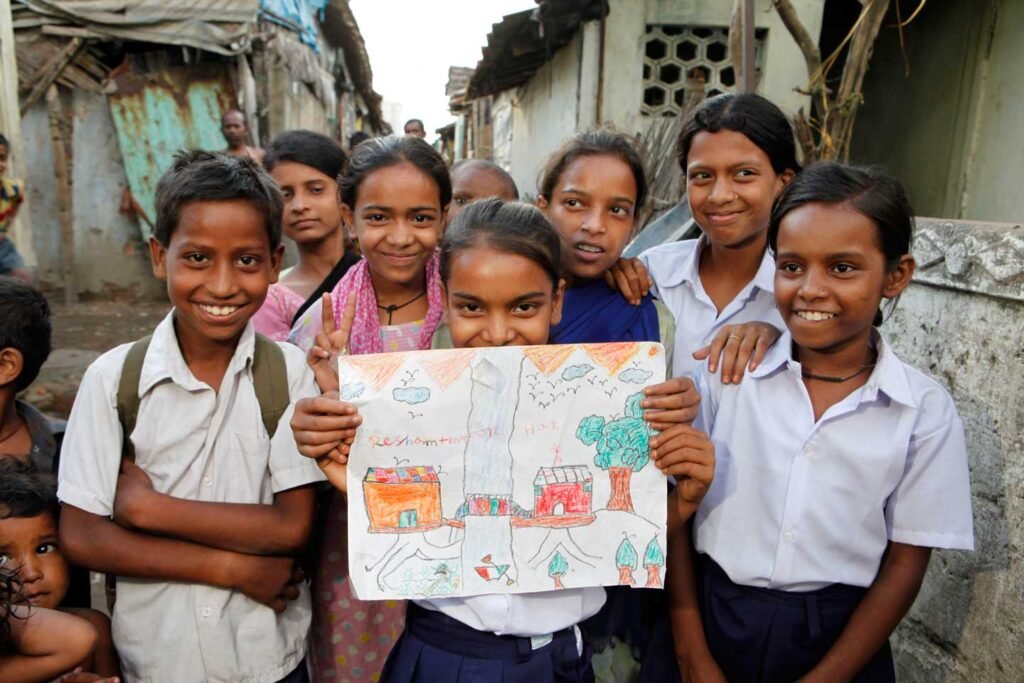
Education is one of the first and most prominent programs of Tiljala SHED. Tiljala SHED has been imparting education since the inception of the organisation in 1987. It all started with one classroom at Tiljala and has now expanded to many more classrooms across Kolkata.
Initially the target of Tiljala SHED was primary students as these were first generation learners. It was a tough challenge to instill discipline among the rag pickers community. In the initial years there was a record number of drop outs. But Tiljala SHED staff was consistent in its efforts and it was able to retain a few students out of the dropouts.
The dropouts were for the following reasons:
- Early child marriage (marrying under 18 years)
- Lack of interest in studying
- Family did not understand the value of education
- Discrimination in school because they belonged to rag pickers community
- The environment around their houses were not suitable for studying
- Rampant domestic violence in the houses
- Baby sitting job within the houses as mother goes to work. The average size of each family is between 6 to 8.
- Children were also involved in rag picking and maid servant work and thus contributing income to the family.
- People had a theory more number of children means more hands for work and hence more income.
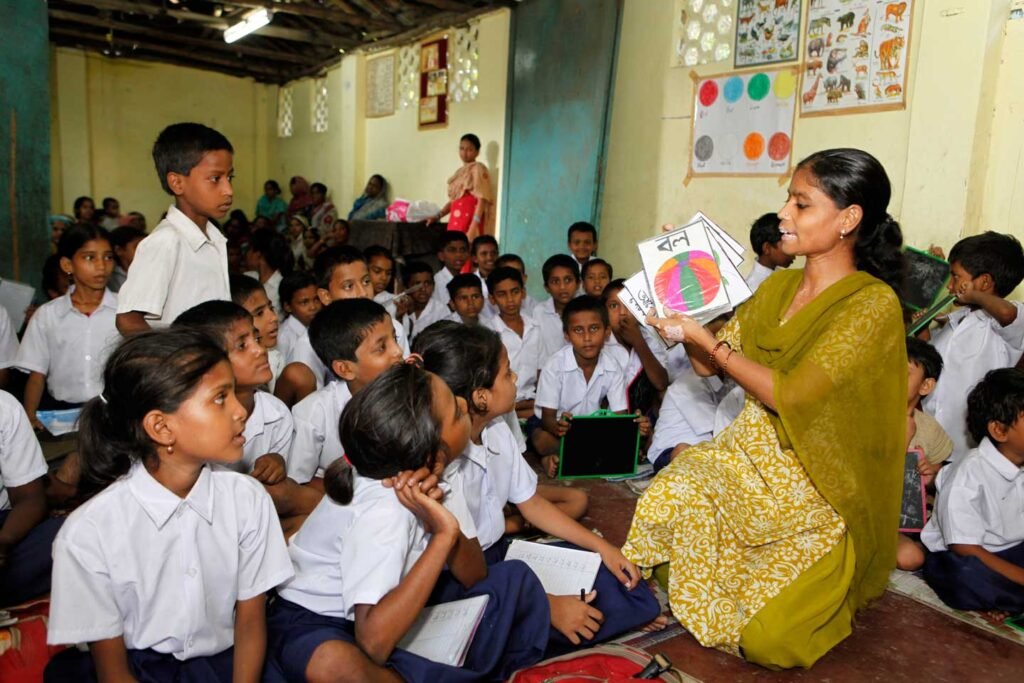
After years of struggle and awareness, the parents especially the mothers are now aware and are now sending their children to schools. They want the next generation to study and do better jobs in big offices. They now have dreams for the children. The children have also responded well and most of them are now going to school with very few dropouts. Tiljala SHED also intervene and talk with the schools where our children were discriminated by the school and the students and this issue was amicably resolved. Our children got equal treatment at the schools and now their teachers share regular updates on the progress of each child.
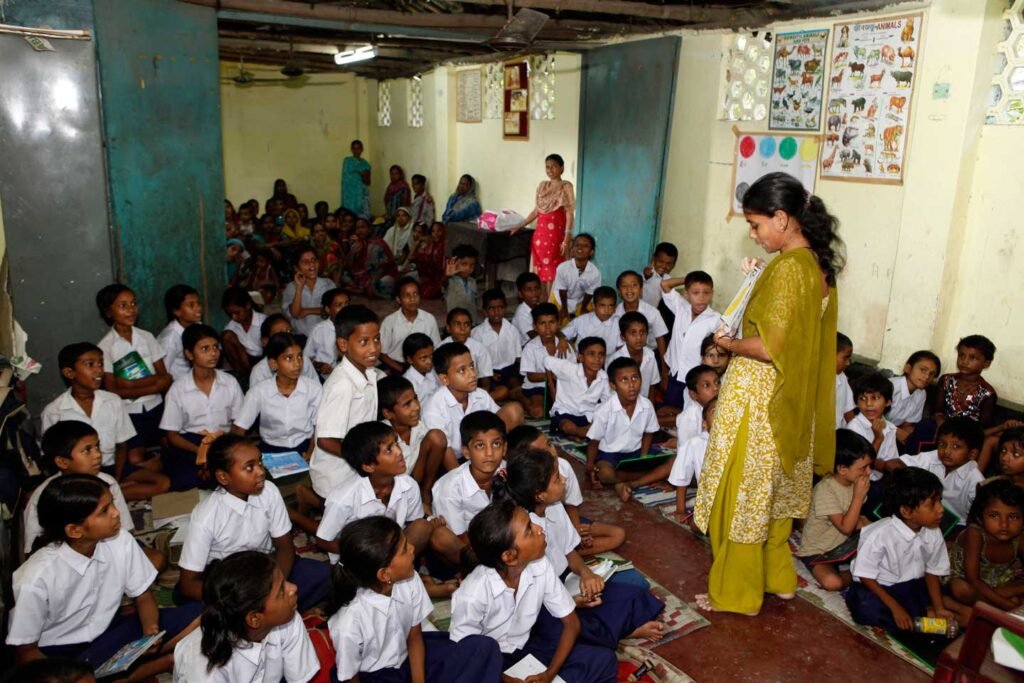
We have morning and afternoon coaching classes for the children of primary section. Recently from last year we had started classes for middle and senior section as there were huge dropout after class V. But after the evening classes the drop out have reduced but still this is a very challenging group of teens. Qualified teachers helped them in Maths, Science and English in these classes. These children have improved in their standard of learning. The children used to roam about in the area and were not studying but after the evening classes things have changed faster.
Sponsorship Program for Destitute Girls :
AIDOS : Italian Association for Women in development, an organisation based in Rome has been supporting the Sponsorship program for destitute girls since 1995. This program provides full scholarship support including toiletries to the girl child and family maintenance assistance so that the family keep sending the child at school. This program has created a massive impact with majority of the girls now studying in school in the local area where the program was implemented.
The family invested in the other girl’s education who was not supported unlike her sister. It also helped to change the stereotype mindset of the people. When the program started the local people were averse to teach the girl child and rampant early marriage was practiced in the area. This program had ripple effects and majority of the girls are now educated in the area with boys lagging behind the girls.
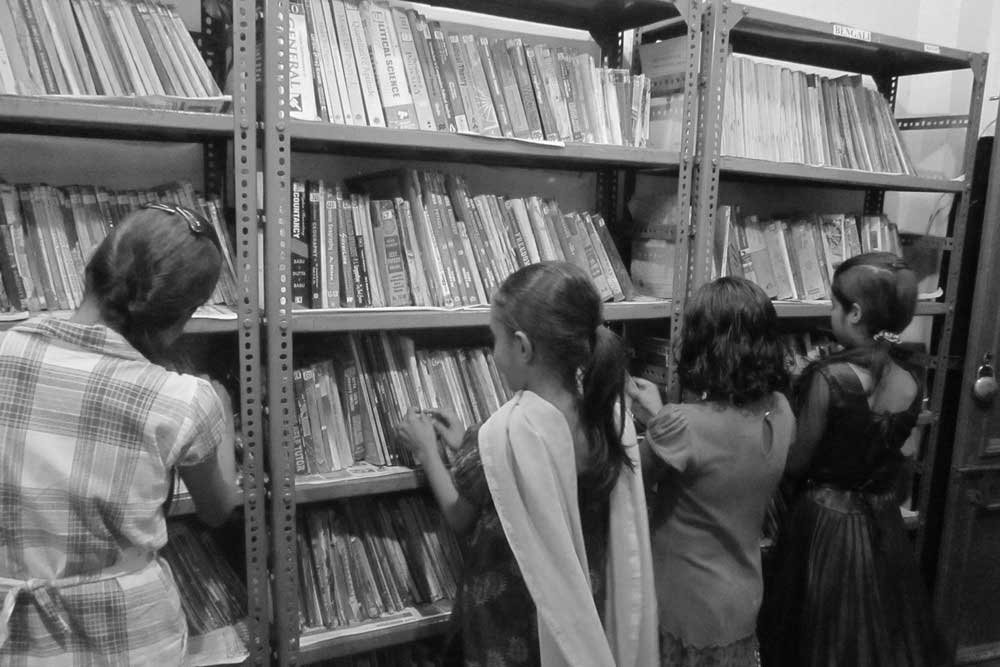
The Gyan Azhar Library:
The Gyan Azhar Library is a ray of hope for the girls living in the Tiljala slums. Girls from nearby slums and squatters visit the library. Even girls from far areas come as the library Is equipped with few thousand books with computers and internet. The library opens its door in July 2008 and since then the girls have grown in number. The girls also use their indoor games facility and exchange of information with peers.
The idea for creating such a library was to ensure a safe and secure place to girls. Because of the large number of family members in a small tiny space it is very difficult for the girls to study comfortably especially during exams. There is no such library in the vicinity of 5 kms for the girls. The current membership strength is over 800 and increasing day by day but due to lack of proper infra-structure, the library is unable to expand and upgrade the facilities. Starting from guitar lessons to vocational training like beads bag, stitching has been conducted at this facility. The girls also do their dance and theatre rehearsals for performing on stage.

The library for girls shares its space with Open Shelter Home for Boys which becomes difficult for the girls to accommodate. A library place needs to be built and the girls floor would be separated so that both the programs function independently. The library program is supported by AIDOS- Italian Association for Women in development, organisation based in Rome.
Institutional Care Home (Shelter Homes) for vulnerable children :
Tiljala SHED basically runs two shelter Homes.
Open Shelter Home for vulnerable children: With three contact points and one Open Shelter at Park Circus, Tiljala SHED has been running this program since the inception of the program. 38 children come every day and 15 children sleep during the night. This is a temporary home for the children.
The children are produced before the CWC (Child Welfare Committee) and then are kept in our home. CWC finds a permanent solution for the children and until then it remains under the care of the organization. Starting from food, education, sports everything is provided to the children. There are around 100 children who gets support from the contact points daily. The program is supported by Ministry of Women and Child, Govt. of West Bengal.
Aasra Sadan-Children’s Home for Rag Pickers & Other vulnerable families:
Aasra Sadan was built by the strong support of Misereor and Indien Kinderhilfe. A children’s home situated 30 kms from the city in a small village, far from the hustle and bustle of the city.
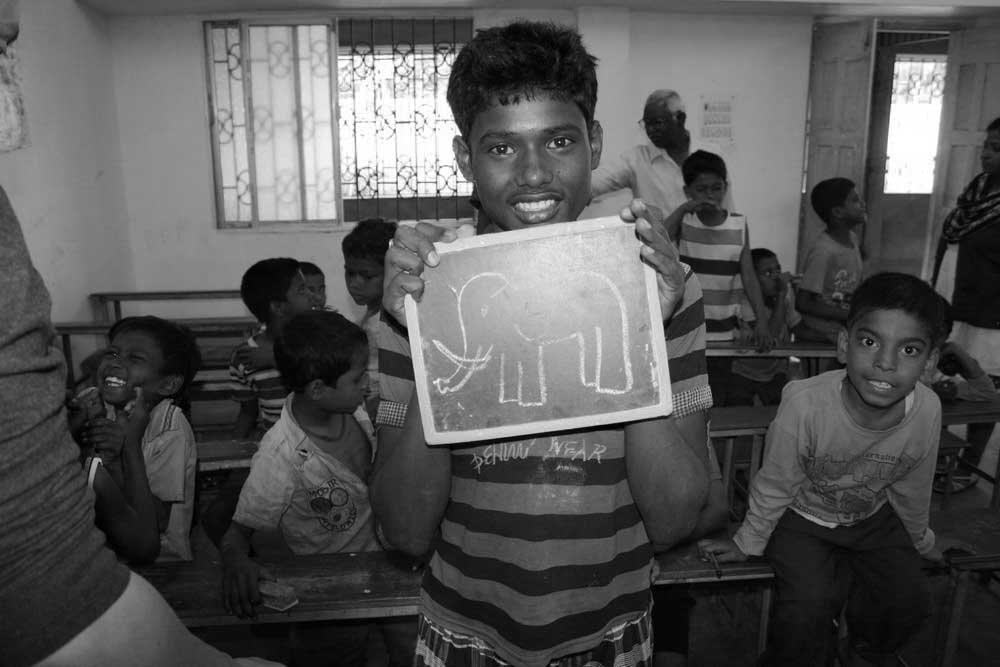
Children of rag pickers and from other vulnerable families are staying for the past 6 years. These children are from the city shanties and had a rough life full of violence, substance abuse, bidi, dendrite, etc. These children from difficult circumstances are kept in this home and sent to the nearby government school in the village. We also have our classrooms in the hostel where they are taught morning and evening by our trained teachers. These children are first generation learners in their family.
Many children are prepared and are not fit for the age appropriate classes. These children need special attention and extra classes to cope with their respective standards of their class. The children are also involved in gardening, indoor and outdoor games, hand work, etc. When we started this home, the children were involved in violence with each other including physical and verbal abuse.
But with counselling and engaging them in group works reduced the violence. These children are now very hopeful of a brighter future. They visit their homes during festivals. We have medical camp for children once a month for their health progress.
